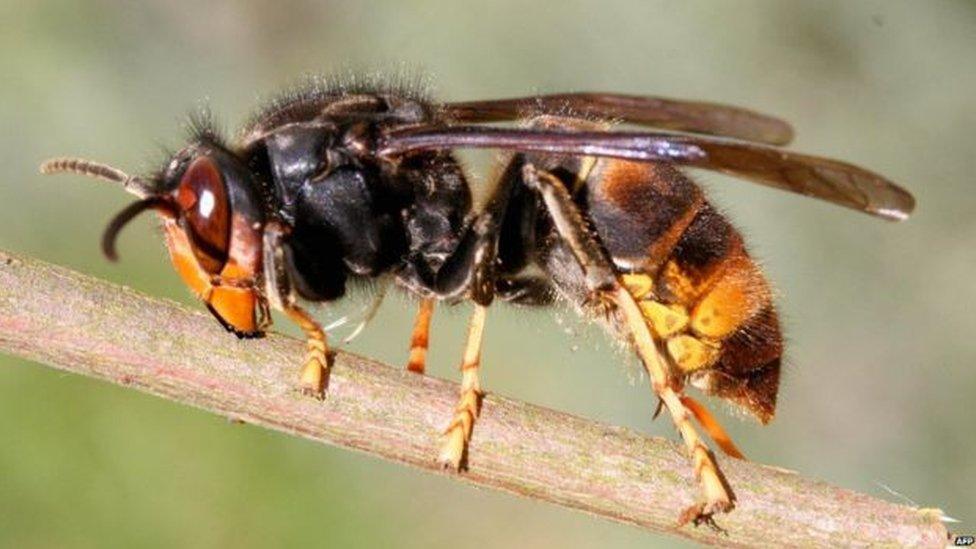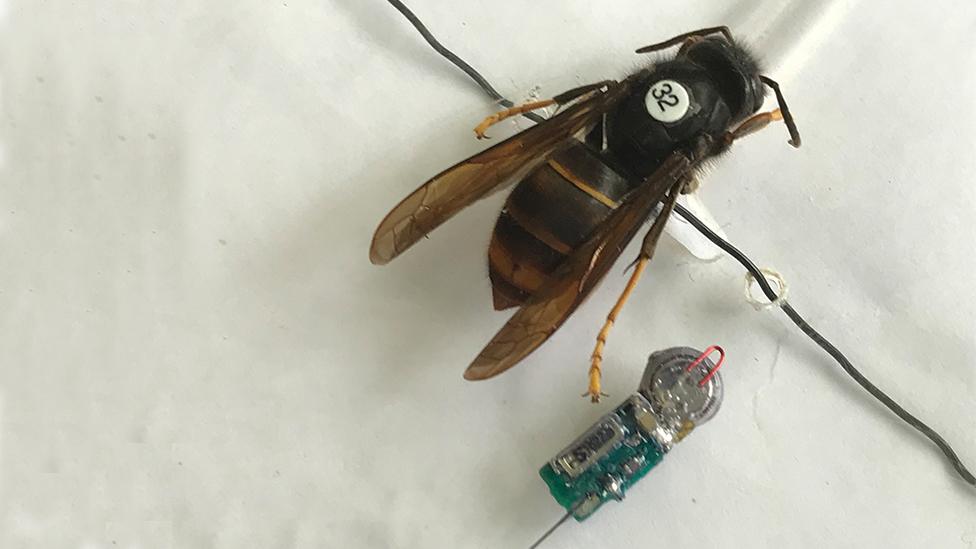Asian hornet sighting in Cornwall sparks surveillance
- Published

The sighting of the Asian hornet has been confirmed in Cornwall
An Asian hornet sighting has been confirmed in Cornwall, sparking a hunt for the honey bee killer's nesting sites.
The predatory species was spotted in the Fowey area, officials from the National Bee unit said.
Inspectors have been carrying out surveillance and monitoring since, the Department for Environment, Food & Rural Affairs (Defra) said.
It follows an earlier sighting in Lancashire earlier this year.
It was first seen in Jersey in 2016, and has since been seen in north Devon.
While the Asian hornet poses no more threat than to humans than a honey bee, it could cause harm to native species, officials said.
Allow X content?
This article contains content provided by X. We ask for your permission before anything is loaded, as they may be using cookies and other technologies. You may want to read X’s cookie policy, external and privacy policy, external before accepting. To view this content choose ‘accept and continue’.
Nicola Spence, from Defra, said a "well-established protocol" was in place.
She said: "That's why we are taking swift and robust action to locate and investigate any nests in the south Cornwall area following this confirmed sighting.
"Following the successful containment of the Asian hornet incursion in north Devon last year and Tetbury previously, we have a well-established protocol in place to eradicate them and control any potential spread.
"We remain vigilant across the country, working closely with the National Bee Unit and their nationwide network of bee inspectors."
'Beleaguered pollinators'
Asian hornet expert Prof Juliet Osborne, from the University of Exeter, said the sighting was "concerning".
She said: "This suggests that further sightings, particularly in the South West of the UK, are highly likely and we must all be vigilant.
"It is an invasive species providing a major new emerging threat to our beleaguered pollinator populations."
Asian hornets arrived in France in 2004 and were first spotted in the British Isles in 2016.
They are not to be confused with the Giant Asian hornet, sometimes referred to as the "Japanese hornet".
- Published4 July 2018

- Published24 August 2018
